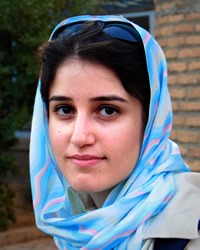Persian in Netherlands

Photo Source:
Hamed Saber - Flickr
Creative Commons
|
Send Joshua Project a map of this people group.
|
| People Name: | Persian |
| Country: | Netherlands |
| 10/40 Window: | No |
| Population: | 43,000 |
| World Population: | 48,380,900 |
| Primary Language: | Persian, Iranian |
| Primary Religion: | Islam |
| Christian Adherents: | 3.00 % |
| Evangelicals: | 0.20 % |
| Scripture: | Complete Bible |
| Ministry Resources: | Yes |
| Jesus Film: | Yes |
| Audio Recordings: | Yes |
| People Cluster: | Persian |
| Affinity Bloc: | Persian-Median |
| Progress Level: |
|
Introduction / History
By definition, Persians (also known as Iranians) are an ethnic group native to Iran. The Persian language, called Farsi, is part of the Indo-Iranian language family, and is the official language of Iran. Dari, the language of the elite in Afghanistan, is a dialect of modern Persian. Around 1000 B. C., Persian groups began to settle in the territory that is now Iran. Loosely associated Persian tribes became a more cohesive political unit under the Achaemenian dynasty. Their unity soon made them the dominant ethnic group in the region. For 1,200 years, Persia maintained a culture that became increasingly more complex and rigid. This laid the foundation for a successful Arabian conquest in the seventh century A. D. It was not until the Islamic revolution of 1979 that massive changes came both to Iran and to the Persian people. Iranians are one of the larger groups if immigrants into Netherlands, and in Europe at large. They are generally known in Netherlands as Dutch-Iranians, Iranian-Dutch, Dutch-Persian, or Persian-Dutch.
Where Are they Located?
Although the vast majority of Persians now live either in Iran or in one of the nearby Middle Eastern countries, small Persian communities can also be found in many other nations around the world including the Netherlands, where they are among the newer Muslim communities.
What Are Their Lives Like?
Iranians are among the best educated people in the Netherlands. There are many college professors of Iranian descent. There is a move among Iranians in the Netherlands to protect former Muslims and Muslims who have criticized Islam. There have been efforts to prevent Iranian students from studying in the Netherlands with the belief that they might learn ways to develop Iran's nuclear program. Ever since the 1970s there have been conflicts between Iranian exiles in the Netherlands and Iranians from Iran's embassy regarding human rights. Iranians in the Netherlands are often involved with local politics. They do not have community organizations like ethnic groups from other parts of the Muslim world, largely because of their internal conflicts. Iranians have made their mark in the Netherlands' art scene. For example, one graphic designer won an award for his craft in 2006.
What Are Their Beliefs?
In the Netherlands, some Iranians choose not to practice their Islamic religion. Those who remain faithful to their beliefs experience exclusion. Their sense of community is strained, making settlement culturally, socially, and economically difficult. Islam is seen by some as the glue that can bring them together. Others view Islam as a negative force.
What Are Their Needs?
Their view of God has been twisted by what they saw in Iran. Iranians in the Netherlands need the chance to hear that Jehovah is a loving God who wants them to have life to the full (Jn. 10:10). They also need loving, patient ambassadors for Christ to introduce them to the only Savior.
Prayer Points
Pray for a Disciple Making Movement to flourish among Iranians all across Europe. Ask the Lord to call and send out people who are willing to share the love of Christ with Iranians. Pray that God will raise up faithful intercessors who will stand in the gap for the Persians. Ask God to strengthen, encourage, and protect formerly Muslim Iranians who have come to faith in Christ. Pray they will reach out to others.